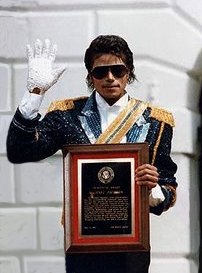 I have a confession to make—Michael Jackson and I shared the same birthday. Twelve years older than me, I admit that he represented a fantasy older brother-like figure in my life when I was younger (I have only one sibling, a sister who is almost 10 years older than me).
I have a confession to make—Michael Jackson and I shared the same birthday. Twelve years older than me, I admit that he represented a fantasy older brother-like figure in my life when I was younger (I have only one sibling, a sister who is almost 10 years older than me).
I would demand attention from my mom and sis whenever “Dancing Machine” was playing by trying my best to dance to it. As the years went on, I became more and more disappointed in and distant from my fantasy older brother. His death touched me, but it stirred up deeply mixed emotions.
In all the media coverage of Michael Jackson’s death, I searched for a recognition of how complicated these emotions were for millions of people around the world. I only found adoration or hatred. Too bad the mainstream media couldn’t convey the complexity.
I was glad yesterday when I finally found coverage in the LGBT media of Michael Jackson that was neither adoration nor hatred—and it had a queer twist.
The Rev. Irene Monroe (who happened to be the other interviewee on my recent NPR stint) wrote a blog post titled “The Queerness of Michael Jackson” on the LGBT group blog The Bilerico Project.
Here’s an excerpt:
“Just as Michael was black he was also queer because he did not conform to our society’s heterosexist norms. And as the man in the mirror faded from black to white so too did his staged gender performances from cute straight boy lead singer of the Jackson 5 to an effeminate male solo artist donning outfits with sequins.
“And as the consummate drag performer he was not only a singer and dancer, Jackson was also a shape-shifter.”
Then, she goes for it:
“Whereas Jackson couldn’t be on the down low about his skin bleaching he could be – and had to be – on the down low about his sexuality.
“With an entertainment industry that forced Rock Hudson, a movie idol, in the closet until his death, and with a black community that still has light years to go in accepting its own lesbian, gay, bisexual, transgender and queer population, Jackson concealed his desire to grow up by donning an asexual Peter Pan image.”
Speculating on Michael Jackson’s sexual orientation and/or gender identity is fair game, especially in the context of the accusations he faced of molesting young boys (and to be fair it must be noted that he never was convicted).
I can accept that it would not have been in good taste to do so in the first wave of coverage after his death, but this second wave should include more open and nuanced analysis of his life.
